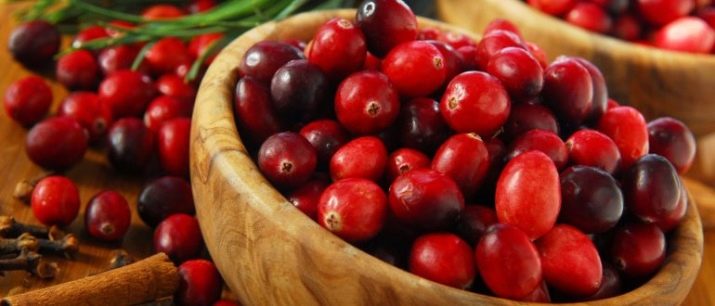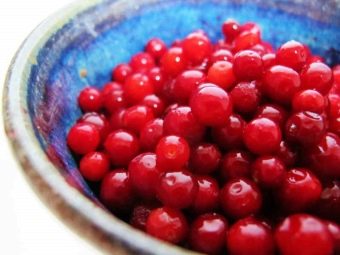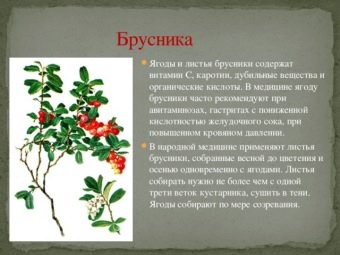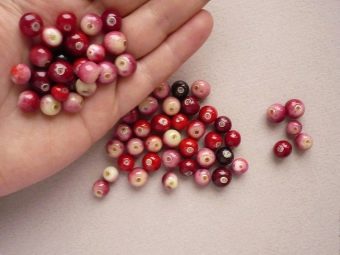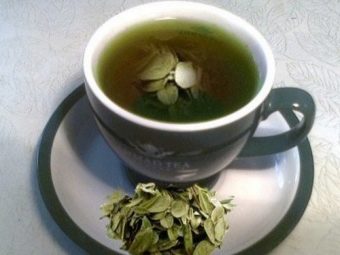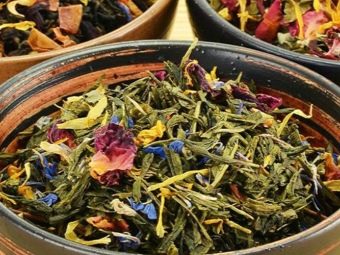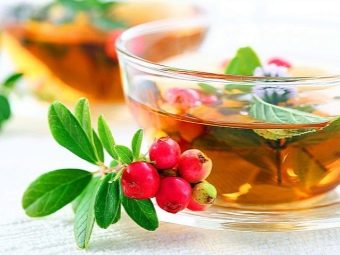Lingonberry for kidney disease: the benefits and harm
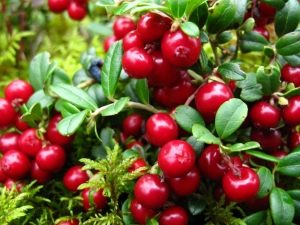
Lingonberry is a valuable medicinal plant that has earned recognition of official medicine.Healing properties are not only in the berries, but also in the leaves, and the rich chemical composition provides a versatile effect. It favorably distinguishes lingonberries in the background of many other medicinal plants. The healing properties of lingonberries are successfully used to treat many diseases, but most often it is used in the treatment of diseases of the kidneys and urinary tract.
Good quality cranberries
The berries of this plant contain a lot of ascorbic acid and other vitamins (A, P, E, group B), there is a large list of organic acids, among which benzoic acid (a natural preservative and antiseptic) is of particular value. Carbohydrates, easily digestible sugars, pectins, the most important trace elements give the fresh fruits of lingonberries a lot of valuable properties.
Fresh berries and juice will help with anemia, vitamin deficiency, loss of strength and neurosis. They relieve inflammation and heat for colds, diseases of the throat and mouth. Lingonberry reduces blood pressure and blood sugar levels, increases the acidity of gastric juice in hypoacid conditions, improves eyesight. This berry will bring considerable benefits in avitaminosis, loss of strength, stressful states.
In the cranberry leaves of such nutrients no less than in the fruit, but there are features. Lingonberry leaves contain a lot of arbutin phenologlycoside, tannins and flavonoids. The presence of these substances in plant materials, including those mentioned above, gives it the following properties:
- antimicrobial, antiseptic;
- anti-inflammatory;
- diuretic (diuretic);
- astringent;
- antispasmodic;
- hypotensive;
- antisclerotic.
In addition, lingonberry increases the elasticity of the vascular walls, reduces their fragility and permeability, thereby improving tissue nutrition. These qualities of lingonberry leaves make them very valuable for treating the kidneys.
What kidney diseases will help cranberries?
This plant will be invaluable in acute and chronic inflammatory diseases of the kidneys and urinary tract, as well as those of their forms, which are accompanied by hypertension and edema, both explicit and hidden:
- acute and chronic pyelonephritis;
- glomerulonephritis;
- prostatitis, urethritis;
- enuresis;
- cystitis;
- stones (urate, oxalate, phosphate) and sand in the kidneys and bladder.
The main objectives in the successful treatment of these diseases are to eliminate the infection, remove inflammation and pain, remove excess fluid from the body in case of edema, and normalize blood pressure. In addition, certain efforts should be made to normalize the metabolism and increase the body's resistance. Thanks to its versatile action, lingonberry leaves meet all these criteria.
It is worth noting that for herbal medicine listed diseases lingonberry is most often used in collections with many other medicinal plants. This is explained by the fact that even the weakest medicinal properties of a single plant can increase many times when interacting with the components of the harvest, and the effectiveness of treatment increases.
Lingonberry is indicated for the treatment of kidney in people of different age categories: children (taking into account the dosage), the elderly, expectant mothers.
Application features
In order to get the maximum benefit from the phytotherapy with lingonberries and collecting it, it is important to brew and use them properly.
- First of all, you must comply with the dose of raw materials specified in the recipe, and not arbitrarily change it "by eye". Typically, the amount of plant materials for the preparation of the infusion or decoction is indicated in grams, so you should buy a scale (electronic kitchen or pharmacy). Sometimes it is indicated in tablespoons or teaspoons (with the top).
- The next important point is to brew and insist the drug collection according to the recipe.
- Ready tea or broth should be drunk only in the recommended amounts, observing the frequency and duration of the intake, otherwise, instead of the expected benefits, you can cause harm. It should be borne in mind that doses for children differ from those for adults and depend on the age of the child.
If only cowberry leaves are used for the treatment, they are used as a decoction due to their dense and leathery structure. To do this, the required amount of raw materials is placed in a porcelain cup, poured with the required amount of boiling water, covered with a lid and placed in a container with boiling water (water bath) for 25-30 minutes. After this time, the broth must immediately be drained (tannins, which are many in the leaves of lingonberry, dissolve well in hot water, but when cooled they will precipitate).
In the case when the lingonberry goes to the camp, tea (napar) is usually prepared. After the water bath, napar must be instilled in heat from 30 minutes to several hours. As a rule, a thermos is used for this.
Examples:
- Take equal parts of the leaves of lingonberry, corn stigma, parsley root and rhizome of calamus, the whole plant of wild strawberry, grass, kidney tea and knotweed. In 10 grams of this composition pour 250 milliliters of boiling water and heat for ten minutes using a water bath. Then insist in a thermos for two hours, then immediately filtered. Drink a third of a glass 3 times a day before meals (dose for adults!). This tea will help with urate acid diathesis and urate stones.
- Take 10 grams of the collection, in which calendula flowers, cowberry leaves, flaxseed, tricolor violet grass and lovage are mixed in equal parts. Pour 300 ml of boiling water, insist on a water bath for 10 minutes, then place in a thermos container for two hours, strain immediately. Take a quarter cup 3 times a day for an hour before meals. This collection is used to treat cystitis and urethritis.
Often in the diet of patients with kidney disease use lingonberry tea. To do this, 10 g of lingonberry leaves should be mixed with 5 g of ordinary black tea, pour a glass of boiling water, leave for 15 minutes and strain immediately. Drink warm, you can slightly sweeten.
With the same purpose from the berries lingonberry prepare and consume drinks and fruit drinks. Sometimes there are added other berries (cranberries, sea buckthorn, Kalina), which adds useful qualities to such a drink. Thus, cranberry-lingonberry juice will be useful for the treatment of cystitis.
Due to the properties of these berries, it has a diuretic effect; it will not allow the bacteria that cause this disease to consolidate on the walls of the urinary tract and quickly remove them from the body.
Contraindications
Reception of a cowberry is contraindicated at:
- allergies to this plant;
- persistent hypotension (low blood pressure);
- gastritis with acidity, gastric ulcer and duodenal ulcer;
- severe forms of renal failure;
- Lingonberry berries are ineffective with urate stones (as opposed to leaves).
When treating kidney disease with lingonberries or its compositions with other plants, it is important to correctly evaluate the role of phytotherapy in each particular case. It can be a parity (that is, presented in equal shares with drugs) or auxiliary, to be a useful addition to the main treatment, enhancing the effect of drugs and speeding up the healing process.
Given the serious consequences of improper treatment of kidney diseases (renal failure, dialysis), you should not overestimate the possibility of herbal medicine. Treatment should be carried out in conjunction with your doctor, especially if it concerns children or pregnant and lactating women. In this case, the valuable properties of lingonberries will serve a speedy recovery and support during remission.
How to clean the kidneys with the help of lingonberries, see below.


